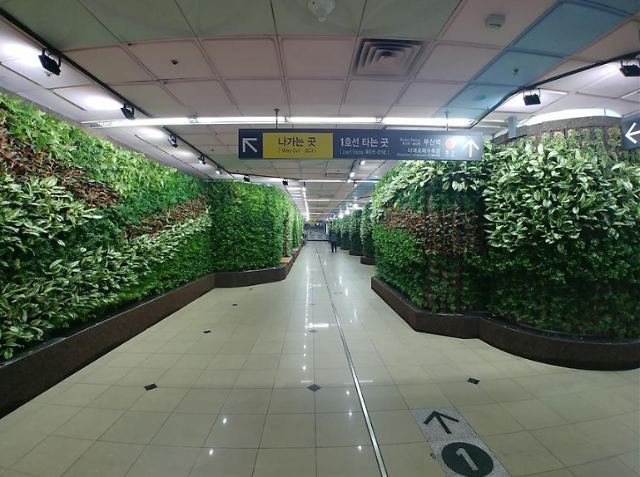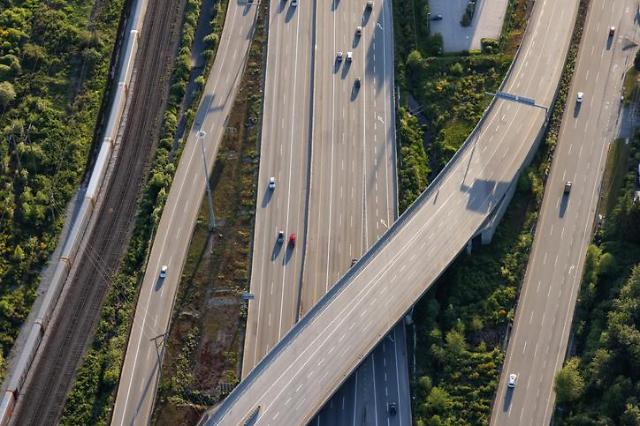
[Courtesy of Busan City]
Smart gardens incorporate internet of things (IoT) technology to control air quality, wind speed, and water distribution to plants. People can heal their minds while taking a break from their busy life. Government data showed that the number of smart gardens skyrocketed to 1,800 in 2022 from 336 in 2021. In Seoul, there are many forms of smart gardens depending on the shape of the buildings such as wall-type and cube-type. Busan aims to build 20 smart gardens every year by 2025.
Busan said in a statement on February 21 that a total of one billion won ($771,000) will be injected to create wall-type indoor gardens at Busan Central Bus Terminal and Gimhae International Airport. Through air purification functions, the smart gardens can capture particulate matter (PM), microscopic dust particles with harmful substances such as heavy metal and carbon composites. It is known to be carcinogenic.
"We will continue to build and expand life-friendly forests in multi-purpose facilities so that we can become a leading city in the carbon neutrality sector by 2050 to respond to the climate crisis," Busan's environment policy bureau head Lee Geun-hee said in a statement.
According to data cited by Busan, smart gardens can alleviate fatigue and depression by more than 50 percent. A study conducted by the state-run National Institute of Forest Science (NiFoS) also showed that experiencing a virtual forest was found to be effective in reducing depression. Those who were exposed to digital forest content for more than 10 minutes showed more consistent psychological effects.
Copyright ⓒ Aju Press All rights reserved.





View more comments